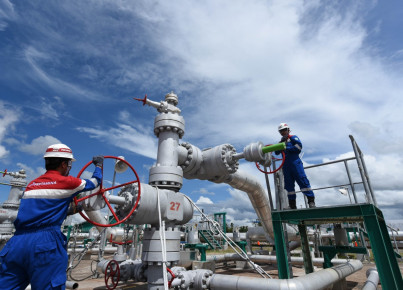Tokyo wants to play a leading role in the economic dynamics of post-Covid ASEAN and, thanks to the energy transition, aims to limit Chinese expansion in the area.
At the recent meeting of G-7 leaders, the complicated issue of climate change and the energy transition was also discussed. Political leaders have now realised that the issue needs to be tackled head-on to arrive at a solution that limits the negative effects of climate change as much as possible. If industrialised countries can deploy significant economic resources and know-how to ensure energy transition and achieve decarbonisation of their economies, the same cannot be said of middle-income countries that are going through a process of economic development, largely based on fossil energy resources, but lack both the economic resources and technological knowledge to deploy projects for the ecological conversion of their societies. Southeast Asia is in this condition and needs the support of developed countries to be able to implement the l’ASEAN Plan of Action for Energy Cooperation (APAEC) 2016-2025 to reduce dependence on fossil fuels.
Therefore, Japan is preparing to invest in the ASEAN’s energy transition. In a recent meeting between ASEAN Ministers on Energy and the Minister of Economy, Trade and Industry of Japan, a joint declaration was issued that commits the parties to strengthen cooperation. Moreover, the Land of the Rising Sun will invest 10 billion dollars in transition support through the Japan Bank for International Cooperation (JBIC) and other financial institutions. This money will be aimed at increasing renewables, energy efficiency, the transition from coal to gas, the use of CO2 capture and storage technologies and finally the transfer of know-how. Tokyo would like to help each of the 10 ASEAN countries to draw up a road map to achieve zero emissions but does not specify a deadline for achieving the goal. However, only three ASEAN countries, Cambodia, Myanmar and Laos, have so far issued official statements on achieving carbon neutrality by 2050, and Japan is pressing all other members to draw up plans and timelines.
The investments in environmental sustainability promoted by Japan should not be seen as a stand-alone move, but are part of a larger logic system that the Asian country has long implemented. Indeed, in recent years, Tokyo has returned interested in Southeast Asia and has strengthened diplomatic and economic relations with the ASEAN countries. Specifically, Japan is very active in investments in the defence, infrastructure, resources and automotive sectors and has recently launched a tax subsidy plan to encourage the relocation of Japanese companies based in China to Southeast Asia. Tokyo believes that investing in ASEAN, relocating businesses and helping the region in the ecological transition, can be beneficial both for itself in terms of economic growth and to offset Chinese influence in the area. For example, decreasing the dependence of ASEAN countries on coal indirectly would mean limiting Chinese influence towards them as Beijing is a major investor and builder of coal-fired power plants.
It is clear that all these actions, in addition to having an economic implication, have a geopolitical value too. Tokyo looks with alarm at the Belt and Road Initiative of Beijing and, as a result, it was the only Asian country not to have joined the Asian Infrastructure Investment Bank created precisely to finance the new Chinese Silk Road. On the other hand, Japan can count on the Asian Development Bank based in Manila. The institute - which was founded in the 1960s and of which Tokyo has the largest shareholding and is therefore always the chairman - has helped to invest heavily in Southeast Asia and is now directing financial flows to support the energy transition in ASEAN.






